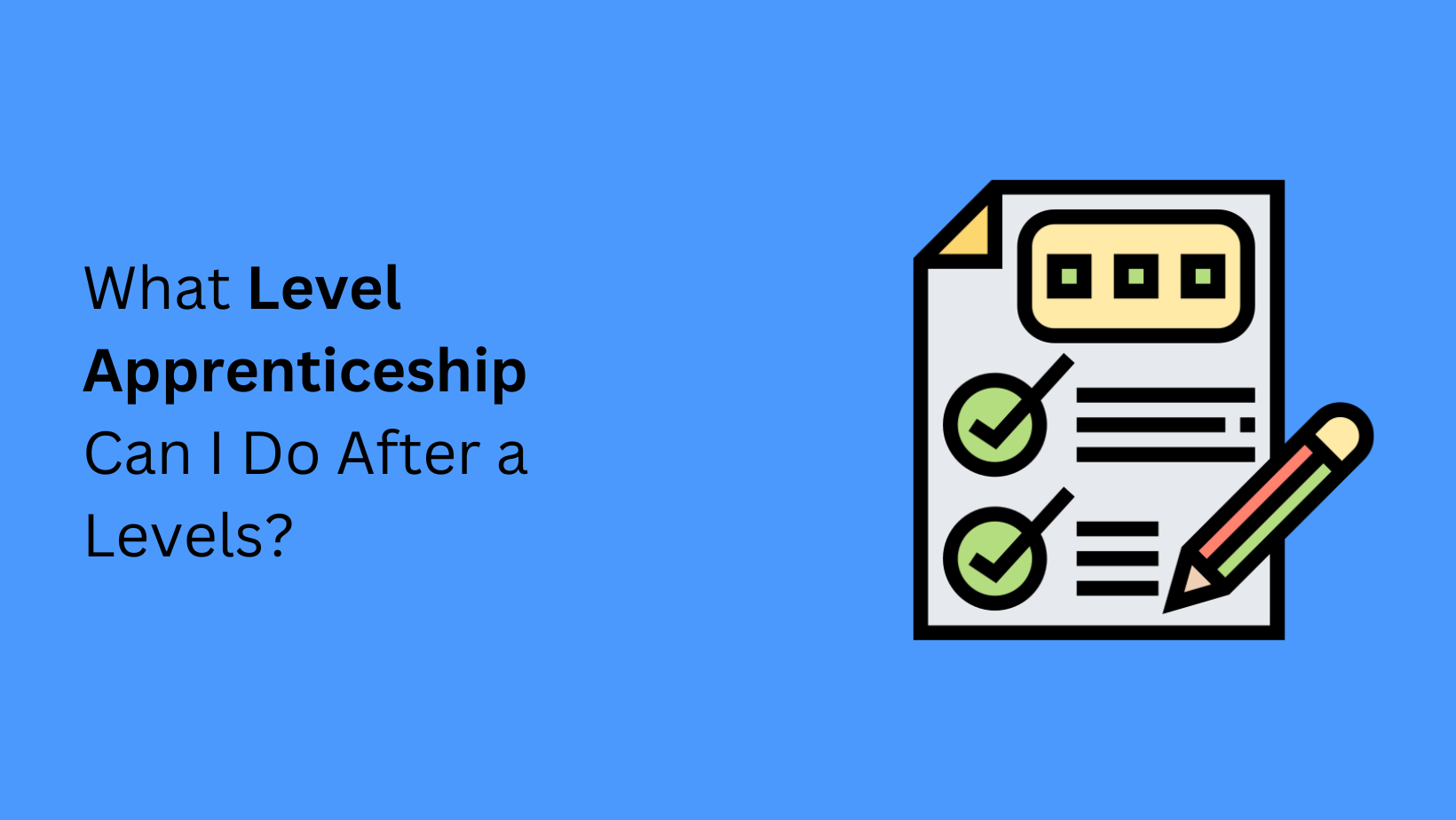Apprenticeships are an excellent way to gain practical skills and knowledge while earning a wage. However, you may wonder, “What level apprenticeship can I do after a levels?
In this article, we’ll explore the various apprenticeship levels available and help you understand which one might best fit you.

Understanding Apprenticeship Levels
Apprenticeships are categorised into levels ranging from Level 2 to Level 7. Each level corresponds to a different stage of your education and career development. Here’s a breakdown of what each level entails:
Level 2: Intermediate Apprenticeships
- Equivalent to GCSEs (grades A*-C)
- Perfect for school leavers
- Typically lasts 12-18 months
- Provides essential skills and a qualification
Intermediate or Level 2 apprenticeships are a great starting point for those who’ve completed their A-levels. They offer a chance to gain practical skills and qualifications while working in an entry-level role.
Level 3: Advanced Apprenticeships
- Equivalent to A-levels
- Suitable for school leavers or those with Level 2 qualifications
- Typically, it takes 18-24 months
- Offers in-depth training and a technical certificate
Advanced apprenticeships are the next step up and are equivalent to A-levels. These apprenticeships provide more comprehensive training and often lead to higher-level job roles.
Level 4 and 5: Higher Apprenticeships
- Equivalent to a foundation degree (Level 4) or an undergraduate degree (Level 5)
- Designed for those with A-levels or Level 3 qualifications
- Usually takes 3-4 years to complete
- Provides a higher education qualification (foundation degree or higher)
Higher apprenticeships are perfect for those who want to pursue higher education without going to university. They combine work and study, allowing you to earn while you learn and gain a degree-level qualification.
Levels 6 and 7: Degree Apprenticeships
- Equivalent to a bachelor’s degree (Level 6) or a master’s degree (Level 7)
- Suitable for A-level or Level 3 qualification holders
- Typically, it takes 3-6 years, depending on the level
- Offers a degree-level qualification (bachelor’s or master’s)
Degree apprenticeships are the highest level of apprenticeships available. They allow you to earn a full bachelor’s or master’s degree while working in a related role. This is an excellent choice if you want a high level of education combined with practical experience.
Finding the Right Apprenticeship for You
To determine which apprenticeship level is right for you after completing your A-levels, consider the following factors:
- Your Qualifications: Start by assessing your qualifications. A-levels typically correspond to Level 3, so you can explore advanced apprenticeships or even higher apprenticeships if you achieve strong A-level results.
- Your Career Goals: Think about your long-term career goals. If you’re certain about your career path and require a degree, a degree apprenticeship could be the way to go. Otherwise, an intermediate or advanced apprenticeship can provide a solid foundation.
- Your Learning Style: Consider how you learn best. If you prefer practical, hands-on learning, apprenticeships are a great fit. A higher or degree apprenticeship might suit you better if you thrive in academic environments.
- Your Financial Situation: Take into account your financial situation. While apprenticeships offer a wage, higher-level apprenticeships might provide a more substantial income due to their longer duration and higher qualifications.
How to Apply
To apply for an apprenticeship, follow these steps:
- Research: Research different apprenticeships and training providers. You can use our website or contact local training providers for information.
- Apply: Once you find an apprenticeship that interests you, apply through our website or directly to the employer.
- Prepare for Interviews: If your application is successful, you may be invited for an interview or assessment. Prepare for this as you would for any job interview.
- Start Your Apprenticeship: If offered a position, you can begin your apprenticeship journey, combining work with education.
Summary
After completing your A-levels, the world of apprenticeships offers many opportunities. Whether you’re looking to gain essential skills, obtain a degree, or start a specific career, there’s likely an apprenticeship level that suits your needs. Remember to research your options carefully, consider your qualifications and goals, and take the first step toward your future career through an apprenticeship. It’s a practical and rewarding way to learn and earn simultaneously while shaping your future.
